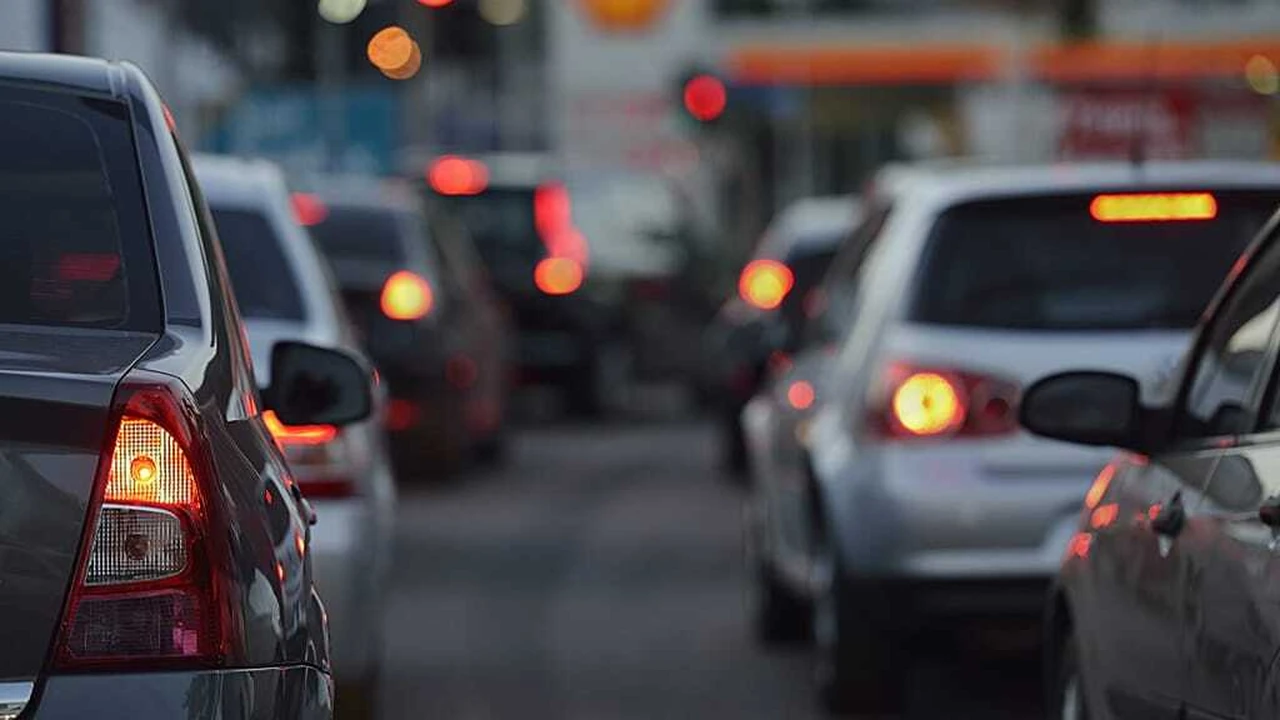Understanding Diminished Value Claims: Recovering Losses

What is a Car Insurance Claim An Introductory Overview
Alright, let's dive straight into the nitty-gritty of car insurance claims. Imagine you're cruising down the road, windows down, singing along to your favorite tune, and BAM! An accident happens. Your heart races, your adrenaline spikes, and you're left wondering, "What now?" Well, that's where car insurance claims come into play.
A car insurance claim is essentially a formal request you make to your insurance company to cover the financial losses resulting from a car accident or other covered incident. These losses can include damage to your vehicle, medical expenses, lost wages, and even pain and suffering. Think of it as your insurance company stepping in to help you pick up the pieces after a less-than-ideal situation.
But here's the kicker: not all claims are created equal. The complexity of the claim process can vary wildly depending on the circumstances of the accident, the type of coverage you have, and even the insurance company you're dealing with. That's why understanding the ins and outs of car insurance claims is crucial. It empowers you to navigate the process with confidence and ensures you receive the compensation you deserve.
So, buckle up and get ready to explore the world of car insurance claims. We'll cover everything from the initial steps of filing a claim to the potential pitfalls and how to avoid them. By the end of this guide, you'll be a car insurance claim pro, ready to tackle any situation that comes your way.
Filing a Car Insurance Claim Step by Step Guide
Okay, so you've been in an accident. First things first, take a deep breath. It's essential to stay calm and collected, even when your adrenaline is pumping. Once you've composed yourself, follow these steps to file a car insurance claim like a seasoned pro:
- Safety First: Ensure everyone involved is safe and, if necessary, call for medical assistance. Don't move injured people unless they are in immediate danger.
- Call the Police: Even for minor accidents, it's crucial to call the police and file a report. The police report will serve as an official record of the accident and can be invaluable during the claims process.
- Gather Information: Exchange information with the other driver(s) involved. This includes their name, address, phone number, insurance company, and policy number. Also, collect the license plate number of their vehicle. If there are any witnesses, get their contact information as well.
- Document the Scene: Take photos and videos of the accident scene, including the damage to all vehicles involved, the surrounding area, and any relevant details like skid marks or traffic signals. The more evidence you have, the better.
- Notify Your Insurance Company: Contact your insurance company as soon as possible after the accident. Provide them with all the information you've gathered and be prepared to answer their questions. They will assign you a claims adjuster who will handle your case.
- Cooperate with the Claims Adjuster: The claims adjuster will investigate the accident and assess the damages. Be honest and cooperative, and provide them with any additional information they request. This may include medical records, repair estimates, and lost wage documentation.
- Get an Independent Estimate: It's always a good idea to get an independent estimate for the repair costs from a reputable auto body shop. This will give you a baseline for negotiating with the insurance company.
- Review Your Policy: Familiarize yourself with the terms and conditions of your car insurance policy. This will help you understand your coverage limits, deductibles, and any exclusions that may apply.
- Negotiate with the Insurance Company: If you're not satisfied with the insurance company's settlement offer, don't be afraid to negotiate. Present your evidence and explain why you believe you deserve more compensation.
- Consider Legal Representation: If you're dealing with a complex or high-value claim, or if the insurance company is refusing to pay, it may be wise to consult with an attorney.
Remember, the key to a successful car insurance claim is to be proactive, organized, and persistent. Don't be afraid to ask questions and advocate for your rights.
Understanding Different Types of Car Insurance Coverage and Claims Scenarios
Alright, let's break down the different types of car insurance coverage and how they relate to various claim scenarios. Knowing your coverage is like having a superpower – it empowers you to navigate the claims process with confidence and ensures you're protected when things go south.
- Liability Coverage: This is the bread and butter of car insurance. It covers the damages and injuries you cause to others in an accident for which you are at fault. Think of it as your financial safety net when you're responsible for the mishap.
- Scenario: You rear-end another car at a stoplight. Your liability coverage will pay for the damages to their vehicle and any injuries they sustain.
- Collision Coverage: This covers damage to your vehicle resulting from a collision with another vehicle or object, regardless of who is at fault. It's your go-to coverage for those fender-benders and parking lot mishaps.
- Scenario: You accidentally back into a pole in a parking lot. Your collision coverage will pay for the repairs to your vehicle, minus your deductible.
- Comprehensive Coverage: This covers damage to your vehicle from events other than collisions, such as theft, vandalism, fire, hail, or hitting a deer. It's your all-encompassing protection against the unexpected.
- Scenario: A tree falls on your car during a storm. Your comprehensive coverage will pay for the repairs, minus your deductible.
- Scenario: Your car is stolen from your driveway. Your comprehensive coverage will cover the value of your car, minus your deductible.
- Uninsured/Underinsured Motorist Coverage: This protects you if you're hit by a driver who doesn't have insurance or doesn't have enough insurance to cover your damages. It's your safeguard against irresponsible drivers.
- Scenario: You're hit by a driver who doesn't have insurance. Your uninsured motorist coverage will pay for your medical expenses and vehicle damage, up to your policy limits.
- Personal Injury Protection (PIP): This covers your medical expenses and lost wages, regardless of who is at fault in an accident. It's your immediate financial support after an accident.
- Scenario: You're injured in a car accident, regardless of who is at fault. Your PIP coverage will pay for your medical bills and lost wages, up to your policy limits.
Understanding these different types of coverage is crucial for filing a successful claim. Make sure you know what coverage you have and how it applies to your specific situation.
Navigating Diminished Value Claims Recovering Your Financial Losses
Okay, let's talk about diminished value claims. This is a topic that often gets overlooked, but it can be a significant source of financial recovery after an accident. Diminished value refers to the loss of value your vehicle experiences after being repaired from an accident. Even if the repairs are done perfectly, the fact that your car has been in an accident can still decrease its resale value.
Think of it this way: would you rather buy a car that has never been in an accident or one that has been repaired after a major collision? Most people would choose the former, and that's why diminished value exists.
To pursue a diminished value claim, you'll need to prove that your vehicle has indeed lost value as a result of the accident. This typically involves obtaining an independent appraisal from a qualified appraiser who specializes in diminished value assessments. The appraiser will consider factors such as the severity of the damage, the quality of the repairs, and the make and model of your vehicle to determine the amount of diminished value.
Keep in mind that not all states allow diminished value claims. Some states only allow you to pursue a diminished value claim against the at-fault driver's insurance company, while others allow you to pursue it against your own insurance company if you have collision coverage. It's essential to check your state's laws and regulations to determine your eligibility.
If you're eligible to pursue a diminished value claim, be prepared to negotiate with the insurance company. They may try to lowball you or deny your claim altogether. Don't be afraid to stand your ground and present your evidence. If necessary, consider consulting with an attorney who specializes in diminished value claims.
Dealing with Insurance Adjusters Expert Negotiation Strategies
Alright, let's talk about insurance adjusters. These are the folks who represent the insurance company and handle your claim. They're responsible for investigating the accident, assessing the damages, and determining the amount of compensation you're entitled to. While some adjusters are genuinely helpful and fair, others may try to minimize your payout or deny your claim altogether.
Here are some expert negotiation strategies for dealing with insurance adjusters:
- Be Polite and Professional: Even if you're frustrated, it's important to remain polite and professional throughout the negotiation process. Remember, you're trying to build a rapport with the adjuster, not antagonize them.
- Know Your Rights: Familiarize yourself with your state's insurance laws and regulations. This will empower you to advocate for your rights and prevent the adjuster from taking advantage of you.
- Document Everything: Keep detailed records of all communication with the adjuster, including dates, times, and the topics discussed. This will be invaluable if you need to escalate your claim or pursue legal action.
- Don't Accept the First Offer: The insurance company's initial offer is often lower than what you're actually entitled to. Don't be afraid to counteroffer and negotiate for a fair settlement.
- Present Your Evidence: Back up your claims with solid evidence, such as photos, videos, repair estimates, medical records, and lost wage documentation. The more evidence you have, the stronger your case will be.
- Be Prepared to Walk Away: If the adjuster is unwilling to negotiate in good faith, be prepared to walk away and explore other options, such as filing a complaint with the insurance commissioner or consulting with an attorney.
Remember, negotiating with an insurance adjuster is a skill. The more prepared and informed you are, the better your chances of obtaining a fair settlement.
Understanding the Statute of Limitations for Car Accident Claims Time is of the Essence
Okay, let's talk about the statute of limitations for car accident claims. This is a crucial piece of information because it sets a deadline for filing a lawsuit. If you miss the deadline, you'll lose your right to pursue legal action, regardless of how strong your case may be.
The statute of limitations for car accident claims varies from state to state. In most states, it's typically two to three years from the date of the accident. However, there are exceptions to this rule, such as cases involving minors or government entities.
It's essential to consult with an attorney to determine the statute of limitations in your state and to ensure that you file your lawsuit within the deadline. Don't wait until the last minute, as it can take time to gather evidence and prepare your case.
Missing the statute of limitations can have devastating consequences. Don't let it happen to you. Take action promptly and protect your legal rights.
Preventing Car Accidents Proactive Safety Measures
While understanding car insurance claims is important, preventing accidents in the first place is even better. Here are some proactive safety measures you can take to reduce your risk of being involved in a car accident:
- Stay Focused: Avoid distractions while driving, such as cell phones, texting, eating, or adjusting the radio. Keep your eyes on the road and your mind on the task at hand.
- Obey Traffic Laws: Follow all traffic laws, including speed limits, traffic signals, and lane markings. These laws are in place to protect everyone on the road.
- Drive Defensively: Be aware of your surroundings and anticipate potential hazards. Look out for other drivers who may be distracted, impaired, or violating traffic laws.
- Maintain Your Vehicle: Keep your vehicle in good working condition by regularly checking the tires, brakes, lights, and other essential components. A well-maintained vehicle is less likely to experience mechanical failures that could lead to an accident.
- Drive Sober: Never drive under the influence of alcohol or drugs. Impaired driving significantly increases your risk of causing an accident.
- Get Enough Rest: Avoid driving when you're tired or fatigued. Drowsy driving can be just as dangerous as drunk driving.
- Adjust to Weather Conditions: Drive according to the weather conditions. Slow down in rain, snow, or fog, and increase your following distance.
By taking these proactive safety measures, you can significantly reduce your risk of being involved in a car accident and protect yourself and others on the road.
Specific Product Recommendations for Car Safety and Accident Documentation
Okay, let's talk about some specific products that can help you stay safe on the road and document accidents effectively. These tools can be invaluable in protecting yourself and streamlining the claims process.
Dash Cams Your Silent Witness
Dash cams are small, video cameras that mount on your dashboard and record everything that happens on the road. They can be a lifesaver in an accident, providing irrefutable evidence of what occurred. Here are a few recommendations:
- Vantrue N4 3 Channel Dash Cam: This is a top-of-the-line dash cam that records in 4K resolution and has three channels, capturing the front, interior, and rear of your vehicle. It also has night vision and parking mode. Price: $250-$300
- Garmin Dash Cam 67W: A reliable and user-friendly option with a wide 180-degree field of view. It automatically records and saves footage when it detects an incident. Price: $200-$250
- Rexing V1 Basic Dash Cam: A more affordable option that still provides reliable video recording. It records in full HD and has loop recording, so you don't have to worry about running out of storage space. Price: $50-$75
Usage Scenario: A dash cam is useful in any driving scenario. It can record accidents, near-misses, and even acts of road rage. It can also be used to document scenic drives or road trips.
Product Comparison: The Vantrue N4 offers the most comprehensive coverage with its three channels and 4K resolution. The Garmin Dash Cam 67W is a good balance of features and price. The Rexing V1 Basic is a budget-friendly option that still provides reliable video recording.
First Aid Kits Be Prepared for Minor Injuries
A well-stocked first aid kit is essential for treating minor injuries at the scene of an accident. Here are a few recommendations:
- First Aid Only All-Purpose First Aid Kit: A comprehensive kit that includes bandages, antiseptic wipes, pain relievers, and other essential supplies. Price: $20-$30
- Johnson & Johnson All-Purpose Portable Compact First Aid Kit: A smaller, more portable kit that's perfect for keeping in your glove compartment. Price: $10-$15
- Surviveware Small First Aid Kit: A durable and waterproof kit that's ideal for outdoor adventures. Price: $40-$50
Usage Scenario: A first aid kit is useful for treating minor cuts, scrapes, burns, and other injuries at the scene of an accident or during everyday life.
Product Comparison: The First Aid Only kit is the most comprehensive and includes a wide range of supplies. The Johnson & Johnson kit is more portable and affordable. The Surviveware kit is the most durable and waterproof.
Emergency Roadside Kits For Unexpected Breakdowns
An emergency roadside kit can help you handle unexpected breakdowns or other roadside emergencies. Here are a few recommendations:
- AAA 42-Piece Emergency Roadside Kit: A comprehensive kit that includes jumper cables, a flashlight, a tow rope, a tire pressure gauge, and other essential tools. Price: $50-$60
- Lifeline AAA Premium Road Kit: A more premium kit that includes additional items such as a shovel, a blanket, and a first aid kit. Price: $70-$80
- Drive Auto Products Roadside Emergency Car Kit: A more budget friendly option that still covers the basics Price: $30-$40
Usage Scenario: An emergency roadside kit is useful for handling flat tires, dead batteries, and other roadside emergencies.
Product Comparison: The AAA 42-Piece kit is a good balance of features and price. The Lifeline AAA Premium kit includes additional items for more serious emergencies. The Drive Auto Products kit is a budget-friendly option that still covers the basics.
Smartphone Apps For Accident Documentation
Your smartphone can be a powerful tool for documenting accidents. There are several apps available that can help you gather information, take photos, and file a claim. Here are a few recommendations:
- WreckCheck: This app guides you through the process of documenting an accident, providing prompts for gathering information and taking photos. Price: Free
- Car Accident Report: This app allows you to create a detailed accident report, including photos, diagrams, and witness statements. Price: Free
- Insurance Company Apps: Most major insurance companies have their own apps that allow you to file a claim, upload photos, and track the progress of your claim. Price: Free (for policyholders)
Usage Scenario: These apps are useful for documenting accidents, gathering information, and filing a claim quickly and efficiently.
Product Comparison: WreckCheck and Car Accident Report are both good options for documenting accidents. Insurance company apps are convenient for filing claims directly with your insurer.
Common Mistakes to Avoid When Filing a Car Insurance Claim
Filing a car insurance claim can be a complex process, and it's easy to make mistakes that could jeopardize your claim. Here are some common mistakes to avoid:
- Failing to Report the Accident Promptly: Don't delay in reporting the accident to your insurance company. The sooner you report it, the better.
- Admitting Fault: Avoid admitting fault at the scene of the accident. Let the insurance companies investigate and determine who is responsible.
- Providing Inaccurate Information: Be honest and accurate when providing information to the insurance company. Misrepresenting the facts could lead to your claim being denied.
- Signing Blank Documents: Never sign blank documents or agreements. Review all documents carefully before signing them.
- Accepting a Lowball Settlement Offer: Don't accept the first settlement offer without considering your options. Negotiate for a fair settlement that covers all of your damages.
- Failing to Seek Medical Attention: Seek medical attention promptly if you're injured in an accident. Document your injuries and follow your doctor's recommendations.
- Going it Alone: If you're dealing with a complex or high-value claim, consider consulting with an attorney. An attorney can protect your rights and help you navigate the claims process.
Legal Considerations for Car Accident Claims Seeking Professional Advice
Car accident claims can involve complex legal issues. If you're dealing with a serious accident, significant injuries, or a dispute with the insurance company, it's wise to seek professional legal advice. An attorney can help you understand your rights, navigate the legal process, and maximize your chances of obtaining a fair settlement.
Here are some situations where it's particularly important to consult with an attorney:
- Serious Injuries: If you've suffered serious injuries in an accident, an attorney can help you recover compensation for your medical expenses, lost wages, and pain and suffering.
- Disputed Liability: If there's a dispute about who is at fault for the accident, an attorney can investigate the accident and gather evidence to support your claim.
- Uninsured/Underinsured Motorist Claims: If you're hit by an uninsured or underinsured driver, an attorney can help you pursue a claim against your own insurance company.
- Wrongful Death Claims: If a loved one has died in a car accident, an attorney can help you file a wrongful death claim to recover compensation for their loss.
- Bad Faith Insurance Practices: If the insurance company is acting in bad faith, such as denying your claim without a valid reason or delaying the claims process, an attorney can help you take legal action.
Don't hesitate to seek legal advice if you're unsure about your rights or the best course of action. An attorney can provide valuable guidance and protect your interests.
:max_bytes(150000):strip_icc()/277019-baked-pork-chops-with-cream-of-mushroom-soup-DDMFS-beauty-4x3-BG-7505-5762b731cf30447d9cbbbbbf387beafa.jpg)






